#auguste franchomme
Text
~ Week of the Nightly Romantics ~
Frédéric Chopin (1810-49) and Auguste Franchomme (1808-84) - Grand Duo concertant for Cello and Piano in E-Major, B. 70. Performed by Anner Bylsma, cello, and Lambert Orkis, fortepiano, on period instruments.
#frederic chopin#auguste franchomme#romanticism#classical music#cello#piano#period performance#period instruments#grand duo concertant#concertante#chamber music#fortepiano#pianoforte#keyboard#cellist#strings#duo#grand duo#rarely performed composers#chopin
31 notes
·
View notes
Text
There’s nothing like cello to make you feel like damaged goods :)
8 notes
·
View notes
Text
Quel cosacco al di là del Danubio
Anonimo: Їхав козак за Дунай (Ikhav kozak za Dunaj, Cavalcò un cosacco al di là del Danubio), canto tradizionale ucraino, qui interpretato dal cantante e virtuoso di bandura Taras Kompaničenko, da Kiev, con il suo ensemble. Il testo è attribuito al poeta ucraino Semen Klimovskij (1705 - 1785).
Portato nell’Europa occidentale dai soldati dell’esercito zarista in guerra contro Napoleone, questo…
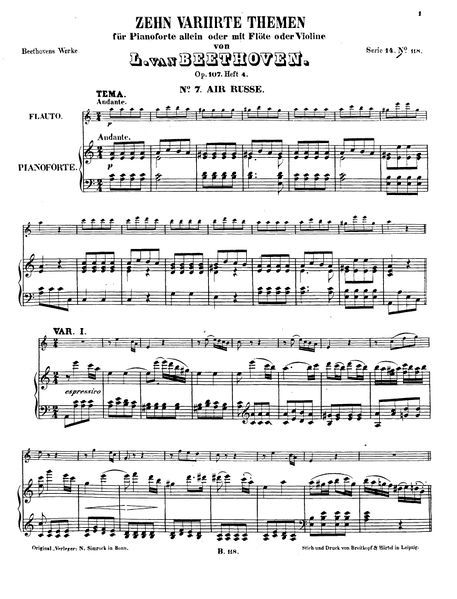
View On WordPress
#Aleksandr Aleksandrovič Aljab&039;ev#Aleksandr Israilevič Rudin#Aleksandr Trostjanskij#Alexander Paley#Anner Bylsma#Auguste Franchomme#Bernhard Schwarz#Carl Maria von Weber#Coro Kubanskij#David Olivares#Dinah Shore#Dorothee Wohlgemuth#Georg Poplutz#Hernán Milla#Ilma Ensemble#Jean-Pierre Rampal#Johann Nepomuk Hummel#L&039;Archibudelli#Ludwig van Beethoven#Martin Haunhorst#melodie itineranti#Napoleone I Bonaparte#Orchestra Musica Viva#Rainer Maria Klaas#Robert Veyron-Lacrois#Rosa Sanz#Sandie Shaw#Semen Klimovskij#Taras Kompaničenko
0 notes
Text
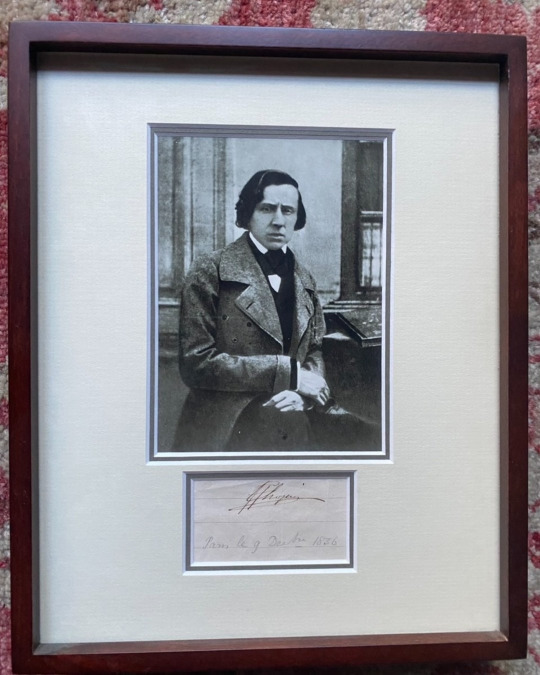


OTD in Music History: Legendary pianist-composer Frederic Chopin (1810 – 1849) makes his last public appearance on a concert platform at the Guildhall in London in 1848. As a patriotic gesture, he plays at a benefit held for Polish refugees; unfortunately, this proves to be both a futile and taxing mistake, since more of the attendees at this event are far more interested in dancing and imbibing refreshments than in listening to Chopin’s artistry, and the exertion leaves him feeling even more drained and weak than he was before. Chopin weighs less than 100 lbs and is already terminally ill from the tuberculosis that will kill him in less than a year…
PICTURED: A beautiful example of Chopin's "classic" full signature, dated in pencil by another contemporaneous hand – probably that of celebrated cellist August Franchomme (1808 – 1884). This example originates directly from the Franchomme estate. Franchomme was the most celebrated French cellist of his time, and he forged close friendships with both Chopin and Felix Mendelssohn (1809 - 1847). In 1833, Chopin and Franchomme collaborated to write a "Grand Duo concertant" for piano and cello, based on themes from Giacomo Meyerbeer's (1791 - 1864) hit 1831 opera, "Robert le diable". Franchomme also rewrote the cello parts for Chopin's "Polonaise Brillante" (Op. 3), and was the dedicatee of Chopin's Cello Sonata (Op. 65).
Based on comparison with other known examples, and taking into account both the date and the lined paper, it seems very likely that this example was cut from a receipt for royalties paid to Chopin by the Pleyel publishing firm for the sale of some of his original compositions. Assuming that the date written beneath this signature is accurate, Chopin had just met his lover Aurore Dupin (better known by her pen name “George Sand”) (1804 - 1876) for the first time at a party a few weeks before his put pen to paper here.
#Frederic Chopin#Frédéric Chopin#Fryderyk Chopin#music history#classical music#composer#Chopin#piano#pianist#sonata#etude#nocturne#polonaise#mazurka#ballade#orchestra#symphony#concerto#music
46 notes
·
View notes
Text
At Fryderyk’s deathbed
Rumours had began to spread in Paris that Fryderyk was dying. And so his appartment at No. 12 place Vendôme was filled with dozens of people; friends, who came to say farewell, pupils, to thank him while he encouraged them one last time, and a great number of mere aquaintances, who simply called in as a mark of respect. Fryderyk would hold a brave face while talking to them, but as soon as they left, he couldn’t hide his suffering anymore. His gasping breaths were hardly more than pitiful, stifled cries, horrifying sobs.
George Sand sent me a letter, in which she asked about Fryderyk’s condition. But the tone of the letter was ill-judged and jarring, filled with pompous insults and assumptions of ”motherly rights“, speaking of Fryderyk like a child who had abandoned and forgotten his mother. I never answered the letter.
It was important to Fryderyk to sort out his affaires befare he died, so he gave us careful instructions. He asked that all unfinished musical manuscripts in his portefolio must be destroyed, and that only completele pieces should be published. He asked that Mozart’s Requiem would be sung at his funeral. And he implored that his body would be cut open, so that he would not be buried alive, and that his heart would be brought back to Poland, where it belongs.

Delfina Potocka arrived from Nice the 15th of October to visit Fryderyk. He was moved by this gesture, and begged her to sing for him one last time. She obliged, and sang to him, accompanied by the piano that we rolled up by the bedroom door.
When the 16th came, Fryderyk asked again for music, so Princess Marcelina and Auguste Franchomme played him some Mozart. After they had finished, he asked them to play his own Sonata for Piano and Cello. But only after a few bars of this he began to suffocate, so they had to stop.
By now, most of the callers had gone, leaving only intimate friends. We spent the evening reciting litanies. Fryderyk was silent. Later, two doctors came to examine him. One of them took a candle and held it before Fryderyk’s face, who had become dark with suffocation. The doctor remarked that his senses had ceased to act. But when he asked Fryderyk if he was suffering, we quite distinctly heard his answer: ”No longer!“

The night came, and more people left, leaving only me, Princess Marcelina, Gutmann, Thomas Albrecht and Solange. The 16th became the 17th when midnight passed. It was silent. Around two o’clock in the morning, I had fallen asleep, but Fryderyk lay awake. Solange sat beside him, holding his hand.
”Don’t stay here, this will be ugly“, he suddenly said to her. ”You must not see it.“ He appeared to have a seizure, so the terrified Solange called Gutmann, who ran over and took Fryderyk in his arms. I woke. We wanted to give him a drink, but death prevented us.
”He passed away with his gaze fixed on me, he was hideous, I could see the tarnishing eyes in the darkness“, Solange later wrote. ”Oh, the soul had died too!“
Fryderyk Chopin, my dear brother, had passed away, after years of sickness and suffering. On the following day, the doctor came to carry out an autopsy, and Auguste Clésinger came to make Fryderyk’s death-mask. I was heartbroken; my world had fallen into darkness, but I stayed in Paris for several months in order to arrange his funeral and sort out his affaires. And when I finally returned to Poland, I brought Fryderyk’s heart with me home.
”The soul of an angel, cast down upon earth in a tortured body in order to accomplish some mysterious redemption“, was how Solange remembered him. ”Is it because his life was a thirty-nine-year agony that his music is so lofty, so sweet, so sublime?“ she wondered.
#fryderyk chopin#frédéric chopin#at fryderyk’s deathbed#death#sickness#ludwika chopin#george sand#delfina potocka#princess marcelina#auguste franchomme#gutmann#thomas albrecht#solange#auguste clésinger#october#17. October
91 notes
·
View notes
Text
I understand your grief; even time does not always heal this kind of pain.
— Frédéric Chopin, from a letter to Auguste Franchomme wr. c. August 1848
#frederic chopin#quotes#literature#book quotes#poetry#grief#life quotes#quoteoftheday#quote#poem#words#writers on tumblr#writers#writing#prose#heartbreak#life#books and libraries#alternative#thoughts
8K notes
·
View notes
Text
I understand your grief; even time does not always heal this kind of pain.
— Frédéric Chopin, from a letter to Auguste Franchomme wr. c. August 1848
#a#frederic chopin#Chopin#dark academia#literature#books#poetry#light academia#academia#aesthetic#dark academia style#dark academia aesthetic#literature blog#quote#letter#love letter#grief
425 notes
·
View notes
Text
“Razumijem tvoje žaljenje; ponekad ni vrijeme ne liječi ovakve rane.”
- Frédéric Chopin, iz pisma Auguste Franchomme wr. c. August 1848
188 notes
·
View notes
Text
Vox Satanae - Episode #530: 17th-20th Centuries - Weeks of October 25 and November 01, 2021
Vox Satanae – Episode #530: 17th-20th Centuries – Weeks of October 25 and November 01, 2021
Vox Satanae – Episode #530
17th-20th Centuries
This week we hear works by Johann Sebastian Bach, Luigi Boccherini, Franz Schubert, Auguste Franchomme, Frédéric Chopin, Franz Liszt, Cameron Carpenter, Igor Stravinsky, Mario Castelnuovo-Tedesco, and Jerry Goldsmith.
135 Minutes – Weeks of October 25 and November 01, 2021
Stream Vox Satanae Episode 530.
Download Vox Satanae Episode 530.
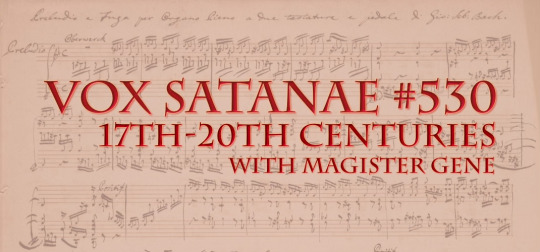
View On WordPress
2 notes
·
View notes
Text
“Razumijem tvoje žaljenje; ponekad ni vrijeme ne liječi ovakve rane.”
- Frédéric Chopin, iz pisma Auguste Franchomme wr. c. August 1848
44 notes
·
View notes
Video
youtube
Chopin - Cello Sonata in g minor (1846)
Early on in his career, Chopin had written music for piano and orchestra, or chamber works. It seems that he did so mostly out of convention and expectation; you couldn’t establish yourself as a ‘great composer’ without writing large scale music in the tradition. But soon after he abandoned those and stuck with solo piano music, and works that were in more free-form structures. However, late in his life, he wrote this cello sonata; a large scale chamber work that followed conventional structure. It was kind of a gift to his close friend, the cellist Auguste Franchomme. It also seemed to be a personal work for him. In letters to his sister, Chopin talked about how much difficulty he had with the work, saying ‘I write a little and cross out a lot’, and ‘Sometimes I am pleased with it, sometimes not. I throw it into a corner and then pick it up again.’ The work is very concentrated, the first movement mostly built out of small motivic like fragments, very far removed from the lyrical Chopin we know and love. This sonata isn’t very popular and I think it is because of how “un-Chopin” it seems at times. The first movement starts out with a sad, march-like theme, some have commented it is similar to a motif in the opening song of Schubert’s Winterreise, Gute Nacht. This similarity makes us wonder if Chopin was inspired by the work, or if he was trying to convey the same sense of depression and separation, if his sickness made him know he was going to die soon, and unsure of how to cope. That could be too “Romantic” of an idea, but it is something to consider. The cello pours in, and unlike Chopin’s earlier chamber works, here the instruments are more integrated with each other. The cello plays the march-like melody, and soon the two plummet into a stormy section where the notes are hard to hang onto, like being tossed in waves. It is an expansive movement, out of the small motifs we get a long drama, again I can’t help but think of waves crashing and subsiding. The next melody is thinner and song-like, at times there are three ideas playing at once in counterpoint. It flows seamlessly through the repeats and modulations. In the coda, the tempo deteriorates a bit, and we get a sense of winding down and a curtain fall. The scherzo is like a baroque gigue almost, a jaunty tune over the rocking rhythm. The middle section has the cello shining with the melody over a fluid piano accompaniment. The slow movement is like any of his nocturnes; a gorgeous aria melody playing over soft orchestral colors. If the first two movements were ships in the middle of a sea storm, this is after the storm, the clouds have parted and over the rippling water is a sky full of stars. The last movement takes us back into the drama of the opening. A lot of chromatics take over and create a rich palette. Through all of the intensity, we modulate into the major, and the coda is bright. The depression that took over so much of the work somehow becomes optimistic.
Movements:
1. Allegro moderato
2. Scherzo. Allegro con brio
3. Largo
4. Finale. Allegro
Cellist: Truls Mørk
Pianist: Kathryn Stott
#Chopin#cello#sonata#music#classical#piano#cello music#piano music#cello sonata#classical music#romantic music#romanticism#Frederic Chopin#Fryderyk Chopin#Chopin cello sonata
41 notes
·
View notes
Text
À son ami A. Franchomme
Fryderyk Chopin (1810 - 1849): Sonata in sol minore per violoncello e pianoforte op. 65 (1845-46). Pavel Gomzjakov, violoncello; Maria João Pires, pianoforte.
Allegro moderato
Scherzo: Allegro con brio [17:10]
Largo [22:45]
Finale. Allegro [26:42]
L’ultima opera pubblicata da Chopin è dedicata all’amico Auguste-Joseph Franchomme, all’epoca il più famoso violoncellista francese, insieme con il…
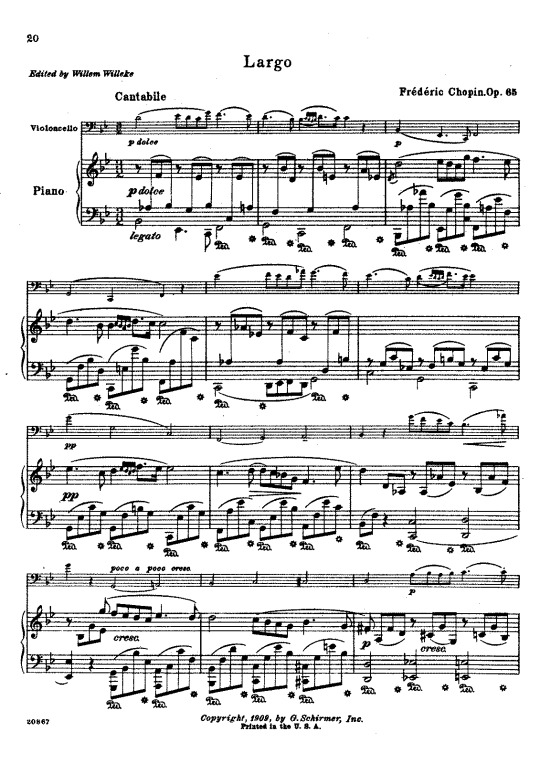
View On WordPress
1 note
·
View note
Text
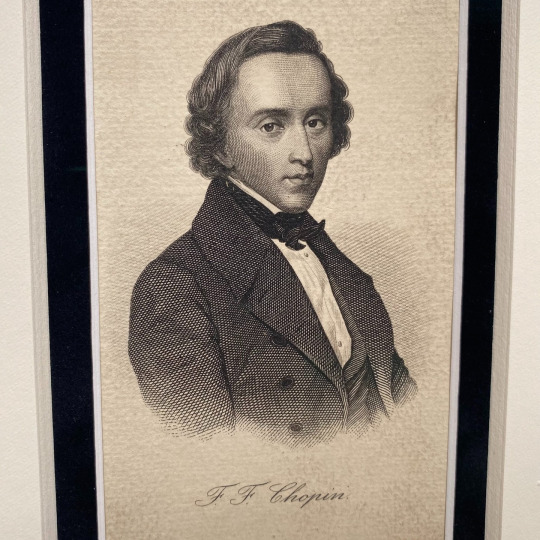
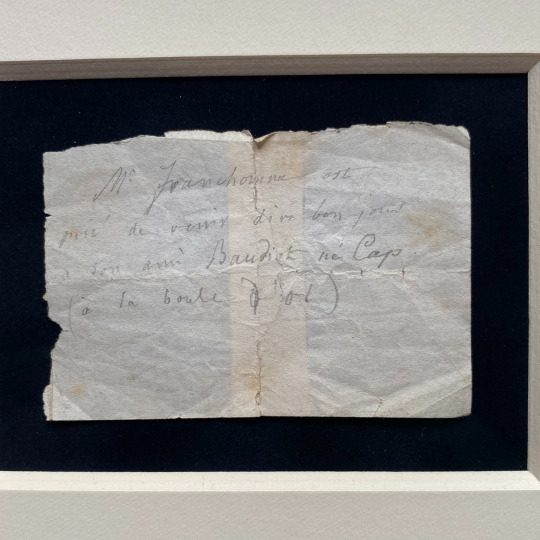
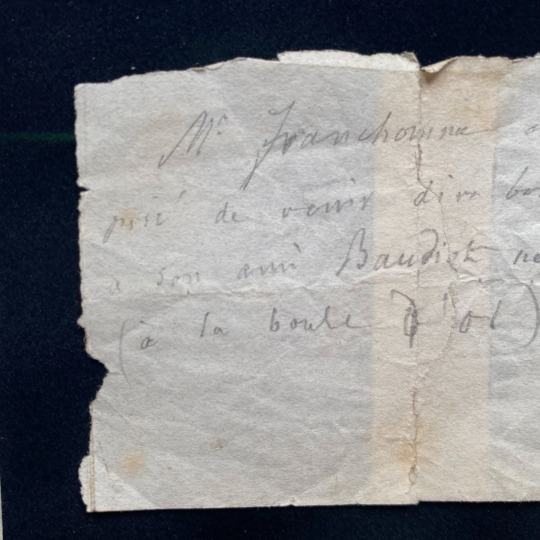

OTD in Music History: Immortal pianist-composer Frederic Chopin (1810 – 1849) dies in Paris.
Chopin’s health had been declining (almost certainly due to late stage tuberculosis) for years prior to his death; indeed, by the late 1840s, he was hardly able to play piano or compose at all because he usually lacked the energy to concentrate.
By October 1848, however, it was clear that he was finally on death’s door; nevertheless, he remained the stereotypically fashionable consumptive romantic genius artist right up until the very end. (His close friend, noted singer Pauline Viardot, sardonically remarked that “all the grand Parisian ladies considered it de rigueur to come faint in his room.”)
In his final days, some of Chopin's closest friends provided music at his request – among them famed cellist August Franchomme (1808 - 1884), who played for him several times while he lay gasping for breath on his deathbed. Just after midnight on October 17, Chopin’s attending physician leaned over him and asked whether he was suffering greatly: "No longer", he whispered. When he passed away two hours later, Chopin left behind a unique musical legacy that has never fallen out of either critical or popular favor at any time in the last century and a half.
PICTURED: A brief autograph note that Chopin scrawled on a scrap of paper in the Summer of 1833. This note, which is addressed to Franchomme, reads as follows:
“Mr. Franchomme est prie de venir dire bon jour a son ami Baudiot ne Cap (a la boule d’or)”
[“Mr. Franchomme is kindly requested to come and pay his morning respects to his friend Baudiot ne Cap (at the golden ball).”]
#Chopin#classical music#music history#composer#conductor#piano#pianist#orchestra#symphony#preludes#cello#cellist#concerto#polonaise#mazurka
3 notes
·
View notes
Text
Vox Satanae - Episode #366
Vox Satanae – Episode #366
Vox Satanae – Episode 366 – 209 Minutes – Week of 30 October 2017
This week we hear works by Franz Schubert, Auguste-Joseph Franchomme, Frédéric Chopin, Franz Liszt, César Franck, Charles Martin Loeffler, Henry Kimball Hadley, Ralph Vaughan Williams, Sergei Prokofiev, Igor Stravinsky, Mario Castelnuovo-Tedesco, and Antonio José Estévez with performances by The Polish National Radio Symphony…
View On WordPress
#Antonio José Estévez#Auguste Franchomme#César Franck#Charles Martin Loeffler#Franz Liszt#Franz Schubert#Frédéric Chopin#Henry Kimball Hadley#Igor Stravinsky#Mario Castelnuovo-Tedesco#Ralph Vaughan Williams#Sergei Prokofiev
0 notes
Text
Quotes from Chopin's letters
- About gossip: "It will pass, however, and our tongues will rot but will not destroy the soul" (to Julian Fontana, 8 August 1839).
- About excessive care:" They are going to suffocate me with their goodness and, out of politeness, I will not object" ( to Wojciech Grzymała, 1 October 1848).
- About linguistic ineptitude: "writing is a torture to me...there are so many things that the pen would not convey" (to W. Grzymała, 22 June 1849).
- About financial situation: "I am to give five lessons today; do you think I'm going to make a fortune? The carriage and white gloves cost more" (to Dominik Dziewanowski, mid January 1833).
- About weather: "The sky is beautiful like your soul, the earth is black like my heart" (to W. Grzymała, 3 December 1838).
- About health: "I was ... very ill: I got a cold despite warm weather of 18 degrees Centigrade, roses, oranges, palm trees and figs" (to J. Fontana, 3 December 1838).
- About the state of his spirit: "I feel like a violin string E attached to a peasant double bass" (to August Franchomme, 6 August 1848).
- A riposte: "Woyciechowski wrote to me and told me to compose an oratorio[...], and I wrote back asking him why he was setting up a sugar factory and not a Benedictine monastery or a Dominican nunnery" (to J. Fontana, 8 August 1839).
Source: https://www.chopin.pl/personality.en.html
#Chopin#fryderyk franciszek chopin#frédéric chopin#frederic françois chopin#frederic chopin#fryderyk chopin#pianist#piano virtuoso#composer#romantic era#romanticism#19th century
10 notes
·
View notes
Text
Camille Thomas Live!
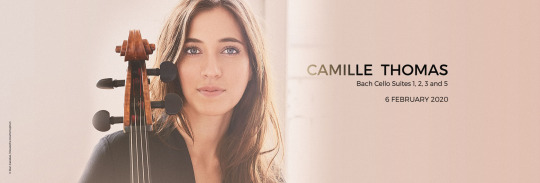
Good news Cello fans of Dubai, Camille Thomas, is playing live on February 6, 2020, at the Dubai Opera. Be ready for a night of melody from Thomas herself, but for those who are not in the knows of the classical music world, Who is Camille Thomas exactly?
Camille Thomas
Camille Thomas has been described as the 'New Star of the Cello' by Jens Rasmussen of DR Radio in Denmark. In 2014, she was recognized for her exemplary skills as a nominee of the Newcomer category of the award-winning body of ‘ Les Victoires de la Musique’ which is also better known as the French Grammys. She won that nomination and received the “New Talent of the Year 2014" award. She was also awarded an ECHO Klassik Preis in 2017 and was signed by Deutsche Grammophon international as the first cellist in 40 years in the same year.
Instrument
Camille Thomas has recently received the prestigious honor of using the 'De Munck, Feuermann’ Stradivarius cello, which was loaned to her for a year by the Nippon Music Foundation in September of 2019. This Cello holds a tantalizing tale of history from talent Cellist to another.
Its initial owner in 1860 was Monsieur de Barrau, who was a famous amateur Cello player who lent the instrument to his friend named August-Joseph Franchomme, who was intending to have the Cello used by his son. Unfortunately, the son of Mr. Franchomme died young. After that, in 1934, the Cello resurfaced under the ownership of W. E. Hill and Sons, who then sold it to Emanuel Feuermann. Feuermann used the Cello for multiple recordings and concerts, that is why the instrument was named after him.
Nippon Music Foundation obtained ownership of the instrument in 1996. Due to its extensive history, only those who are exceptional can use it. Hence it has arrived in the hands of Camille Thomas.
Music
As of this date, Camille those have released two albums, namely, her debut album REMINISCENCES from 2016 and follow by her 2017 release of SAINT-SAËNS - OFFENBACH. These albums have received positive responses from critics citing that her sophisticated techniques are something that should be admired despite her youth.
Concert
Thomas's concert in Dubai will be held at the Dubai Opera on a Thursday of February 6, 2020. The show will last 120 minutes with a 20-minute interval. It will start at 8:00 pm. Here is the list of prices per category at this concert.
VIP Stall - AED 450.00
VIP Royal Circle - AED 450.00
Platinum Stalls - AED 350.00
Platinum Royal Circle - AED 350.00
Gold Royal Circle - AED 250.00
Gold Stalls- AED 250.00
Gold Grand Circle -AED 250
Silver Stalls - AED150.00
Silver 1 Royal Circle - AED 150.00
Silver 2 Royal Circle - AED 150
Visit Camille Thomas's website for more concert locations and details here.
Final Thoughts
Do not miss the chance to hear this fantastic artist live and be serenaded by music all throughout the concert. You are surely in for a wonderful experience.
0 notes